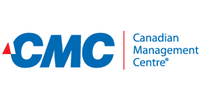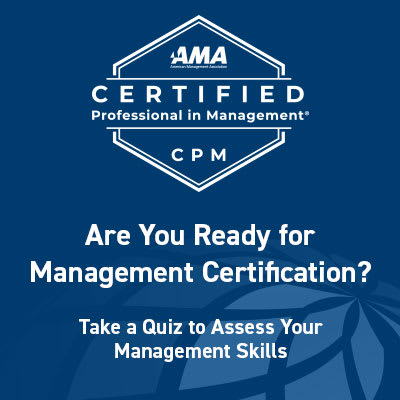Course description

Improving Employee Well-Being in Your Organization
People are a business’s most valued asset, so it stands to reason that employee wellness is a fundamentally important metric for ensuring your company optimizes its talent. In fact, holistic wellness is one of the drivers that is reshaping the world of work—and it’s likely to take even greater organizational focus in the future. Today’s potential and current employees expect employers’ practices and policies to reflect a “whole person” perspective that includes diversity, equity and belonging, transparency, and a whole range of related issues.
In this course, you will learn to identify major shifts in how work is conducted—recognizing the impact of the pandemic, Generation Z, technology, and other global forces. Explore how to build a business case for a whole health initiative in your workplace, recognize potential obstacles and pitfalls, and discover the steps leaders must take in order to make such a program a reality—plus much more.
Upcoming start dates
Who should attend?
Who Should Attend
Leaders in human resources, total rewards, and benefits, as well as business owners and other professionals who oversee the HR function or are involved with or responsible for strategic initiatives that impact organizational change.
Training content
The Business Imperative for Prioritizing Well-Being
- Recognize Why Organizations Are Paying Attention to Employee Well-Being
- Identify Major Shifts in When, Where and How Work Is Happening
- Define “Well-Being,” “Healthy Workplace,” and “Organizational Health"
- Describe the Link between Employee Well-Being and Organizational Health
- Determine an Aspect of Employee Well-Being You Can Impact
Employees and Their Changing Attitudes Toward Work
- Examine the New Social Contract between Employer and Employee
- Consider the Employee Experience as a Source of Insight
- Leverage the Purpose Imperative to Support Engagement, Retention, and Talent Acquisition
- Articulate the Relationship between Psychological Safety and Employee Well-Being
Fully Leverage the Employee Program Investments You’ve Already Made
- Review the “Benefits” Offered by Your Organization
- Prioritize Which Benefits Have the Greatest Impact on Employee Well-Being
- Identify Which “Benefits” Are Under-Utilized, and Why
- Plan to Communicate Value of Using Existing Benefits
Putting Employee Well-Being Front and Center
- Gain Clarity on the Role of Organizational Culture on Employee Well-Being
- Consider How an Employee or New-Hire Would Describe Your Organization’s Culture around Well-Being
- Assess How Your Organization’s Mission, Vision, Structure, and Culture May Conflict with Well-Being
- Identify “Elephants in the Room”
Make It Real
- Gather Ideas from Employee Well-Being Case Studies
- Assess the Seven Elements of Well-Being at Your Organization
- Complete the CDC Worksite Health Scorecard Assessment
- Determine What You Will Measure to Determine the Success of Your Initiative
Define Areas of Opportunity in Your Organization
- Explain a Simple, Effective Organizational Change Model
- Recognize Common Causes of Failure and of Success in Change Initiatives
- Create a Vision for Your Employee Well-Being Change Initiative
- Identify Stakeholders, Sponsors, Naysayers, and Supporters
- Make a Plan to Communicate the Vision
Building the Case for Your Initiative
- Explain Elements of a Business Case
- Write a Simple Business Case to Gain Support for Your Healthy Workplace/Well-Being Initiative
- Practice a Conversation to “Sell” Your Business Case to Possible Allies and Sponsors
- Complete the “Putting It All Together: Create Your Action Plan”
Course delivery details
- Classroom Schedule
- 3 Sessions Available
- Online Schedule
- 3 Sessions Available
Costs
- $2.595.00 Non Members
- $2.345.00 AMA Members
- $2,221.00 GSA
Certification / Credits
CEU: 1.2
- Recognizing why companies are prioritizing the health and well-being of their employees
- Describing a healthy organization and the determinants of a healthy, thriving workforce
- Developing a framework of overall wellness: mental, physical, social, financial, spiritual, and environmental
- Exploring the critical role of leaders in driving and achieving organizational health
- Discussing productivity, flow, and creativity in today’s knowledge workforce
- Identifying major shifts in when, where, and how work is happening
- Examining the new social contract (roles, rules, purpose) between employer and employee
- Fully leveraging the employee program investments you’ve already made
- Determining how to start, and where to focus your organization’s efforts
- Exploring best practices and lessons learned related to health and well-being initiatives
- Building a case for change, identifying sponsors and influencers as well as cultural and structural roadblocks
- Putting it all together and developing your action plan
American Management Association Company Info
The American Management Association, International (AMA) is the global leader in talent development. Founded in 1923, AMA supports the goals of individuals and organizations through a complete range of educational products and services, including instructor-led classroom and virtual seminars, webinars,...



